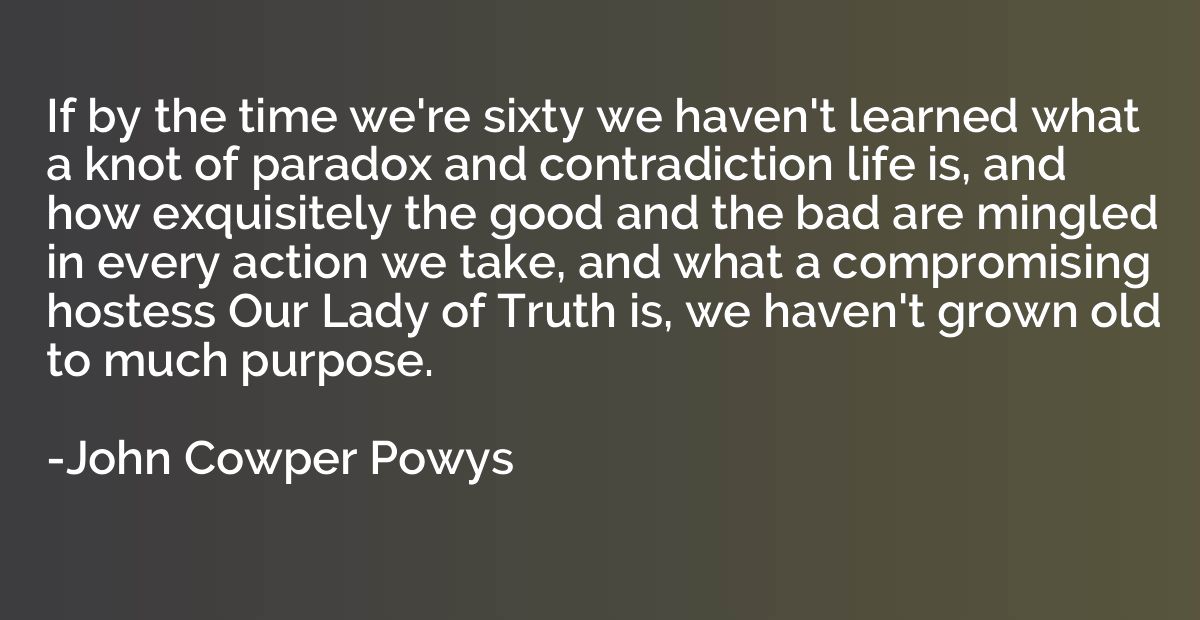Quote by John Cowper Powys
If by the time we're sixty we haven't learned what a knot of paradox and contradiction life is, and how exquisitely the good and the bad are mingled in every action we take, and what a compromising hostess Our Lady of Truth is, we haven't grown old to much purpose.

Summary
This quote suggests that by the time we reach old age, it is important to have grasped the complex nature of life, acknowledging its paradoxes and contradictions. It highlights the intertwining of good and bad in our everyday choices and actions. The quote also characterizes Truth as a hostess who often requires compromise. Ultimately, it implies that a life well-lived involves understanding the nuanced and intricate aspects of existence.














